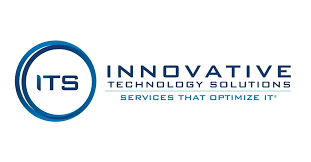The Power of CRM Solutions in Driving Business Success
Customer Relationship Management (CRM) solutions have revolutionized the way businesses interact with their customers. In today’s competitive landscape, maintaining strong relationships with customers is essential for sustainable growth and success.
CRM solutions offer a centralized platform that enables businesses to manage customer interactions, track leads and opportunities, and analyze customer data to make informed decisions. By leveraging CRM tools effectively, businesses can streamline their sales processes, improve customer service, and enhance overall efficiency.
Key Benefits of CRM Solutions:
- Improved Customer Relationships: CRM solutions help businesses better understand their customers’ needs and preferences, allowing for personalized interactions and targeted marketing campaigns.
- Increased Sales Efficiency: By automating repetitive tasks and providing valuable insights into customer behavior, CRM solutions empower sales teams to focus on building relationships and closing deals.
- Enhanced Customer Service: With access to a comprehensive view of each customer’s history and preferences, businesses can deliver timely and personalized support that leads to higher satisfaction levels.
- Data-driven Decision Making: CRM solutions provide valuable analytics and reporting tools that enable businesses to identify trends, forecast sales opportunities, and optimize their strategies based on real-time data.
In conclusion, investing in a robust CRM solution is not just a trend but a strategic imperative for businesses looking to stay ahead in today’s fast-paced market. By harnessing the power of CRM technology, organizations can unlock new opportunities for growth, improve operational efficiency, and ultimately drive long-term business success.
Top 5 Benefits of CRM Solutions: Boosting Customer Relations and Business Efficiency
- Improved customer relationships through personalized interactions
- Increased sales efficiency by automating tasks and providing insights
- Enhanced customer service with access to comprehensive customer data
- Data-driven decision making with valuable analytics and reporting tools
- Streamlined business processes for improved operational efficiency
6 Key Drawbacks of CRM Solutions: Costs, Complexity, and More
- High implementation costs can be a barrier for small businesses.
- Complexity of CRM systems may require extensive training for users.
- Data security and privacy concerns may arise due to the sensitive nature of customer information stored in CRM databases.
- Integration challenges with existing software and systems can lead to compatibility issues.
- Customization options in some CRM solutions may be limited, restricting flexibility for unique business needs.
- Over-reliance on CRM technology can sometimes overshadow the importance of human interaction in building customer relationships.
Improved customer relationships through personalized interactions
CRM solutions offer businesses a significant advantage by enhancing customer relationships through personalized interactions. By leveraging CRM tools to gain insights into customer preferences and behavior, businesses can tailor their communication and marketing efforts to meet individual needs effectively. This personalized approach not only fosters stronger connections with customers but also increases engagement and loyalty. Ultimately, the ability to deliver customized experiences based on customer data sets businesses apart in today’s competitive market, driving increased satisfaction and long-term customer retention.
Increased sales efficiency by automating tasks and providing insights
One significant advantage of CRM solutions is the increased sales efficiency they bring by automating tasks and providing valuable insights. By automating repetitive processes such as data entry, follow-up emails, and lead assignment, sales teams can focus their time and energy on building relationships and closing deals. Additionally, the insights generated by CRM tools help sales professionals understand customer behavior, preferences, and buying patterns, enabling them to tailor their approach for higher success rates. This streamlined workflow not only saves time but also enhances productivity, ultimately leading to improved sales performance and business growth.
Enhanced customer service with access to comprehensive customer data
One of the key advantages of CRM solutions is the ability to enhance customer service through access to comprehensive customer data. By centralizing customer information such as purchase history, preferences, and interactions, businesses can provide personalized and efficient support to their customers. This deeper understanding of each customer allows for tailored communication, quicker issue resolution, and overall improved satisfaction levels. With CRM solutions empowering businesses with a 360-degree view of their customers, they can deliver a higher level of service that builds trust and loyalty over time.
Data-driven decision making with valuable analytics and reporting tools
One of the key advantages of CRM solutions is their ability to facilitate data-driven decision making through valuable analytics and reporting tools. By leveraging these tools, businesses can gain deep insights into customer behavior, preferences, and trends. This data empowers organizations to make informed decisions, identify opportunities for growth, and optimize their strategies based on real-time information. Ultimately, the ability to harness data effectively through CRM solutions enables businesses to stay agile, competitive, and responsive to the evolving needs of their customers.
Streamlined business processes for improved operational efficiency
CRM solutions offer the invaluable benefit of streamlining business processes to enhance operational efficiency. By centralizing customer data and interactions, CRM systems eliminate silos and redundancies in information management. This streamlined approach enables teams to access real-time data, collaborate more effectively, and make informed decisions swiftly. As a result, businesses can optimize their workflows, reduce manual tasks, and allocate resources more efficiently, ultimately leading to improved productivity and operational performance.
High implementation costs can be a barrier for small businesses.
High implementation costs can pose a significant challenge for small businesses considering CRM solutions. The initial investment required to set up and customize a CRM system can be daunting for companies with limited financial resources. Small businesses may struggle to justify the expense of implementing a CRM solution, especially if they are uncertain about the potential return on investment. As a result, the high upfront costs associated with CRM implementation can act as a barrier for small businesses looking to leverage these tools to improve their customer relationships and streamline their operations.
Complexity of CRM systems may require extensive training for users.
The complexity of CRM systems can pose a significant challenge for businesses, as it often necessitates extensive training for users to effectively utilize the software. Implementing a CRM solution that requires specialized knowledge and training can lead to delays in adoption, increased costs associated with training programs, and potential resistance from employees who may find the system overwhelming. Moreover, ongoing training and support are essential to ensure that users fully leverage the capabilities of the CRM system, highlighting the importance of investing time and resources in user education to maximize the benefits of CRM technology.
Data security and privacy concerns may arise due to the sensitive nature of customer information stored in CRM databases.
Data security and privacy concerns represent a significant con of CRM solutions, as the sensitive nature of customer information stored in CRM databases raises potential risks. Unauthorized access, data breaches, or misuse of customer data can lead to serious consequences for both businesses and their customers. Ensuring robust security measures, implementing strict access controls, and complying with data protection regulations are essential steps to address these concerns and safeguard the confidentiality and integrity of customer data within CRM systems.
Integration challenges with existing software and systems can lead to compatibility issues.
One significant drawback of CRM solutions is the potential integration challenges they pose with existing software and systems, which can result in compatibility issues. When implementing a CRM system, businesses may encounter difficulties in seamlessly integrating it with their current technology infrastructure. This can lead to data silos, inefficiencies in data sharing, and inconsistencies in information across different platforms. Addressing these integration challenges requires careful planning, technical expertise, and potentially additional resources, which can add complexity and costs to the implementation process. Failure to overcome these compatibility issues may hinder the effectiveness of the CRM solution and limit its ability to deliver the desired benefits to the organization.
Customization options in some CRM solutions may be limited, restricting flexibility for unique business needs.
Some CRM solutions may present a challenge due to limited customization options, which can restrict the flexibility needed to address unique business requirements effectively. Businesses with specific processes or workflows may find themselves constrained by the pre-set configurations of certain CRM platforms, limiting their ability to tailor the system to their exact needs. This lack of customization can hinder optimal utilization of the CRM solution and potentially lead to inefficiencies in adapting the software to match the intricacies of individual business operations.
Over-reliance on CRM technology can sometimes overshadow the importance of human interaction in building customer relationships.
Over-reliance on CRM technology can inadvertently diminish the significance of human interaction in fostering genuine and lasting customer relationships. While CRM solutions offer valuable tools for managing customer data and streamlining processes, solely relying on automated interactions may lead to a sense of detachment and impersonality. Building trust and rapport with customers often requires authentic human engagement, empathy, and personalized attention that cannot be fully replicated by technology alone. It is crucial for businesses to strike a balance between leveraging CRM technology for efficiency and ensuring that human touch remains at the core of their customer relationship strategy.



